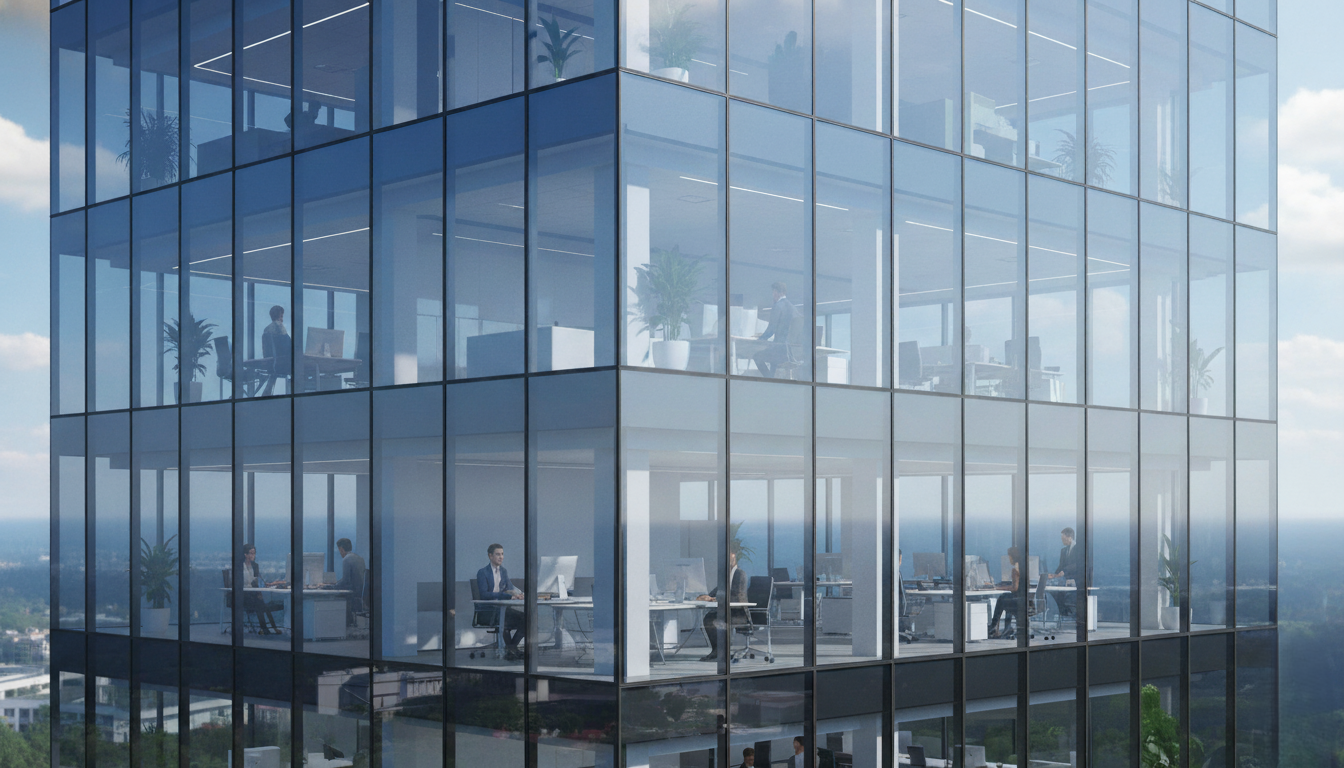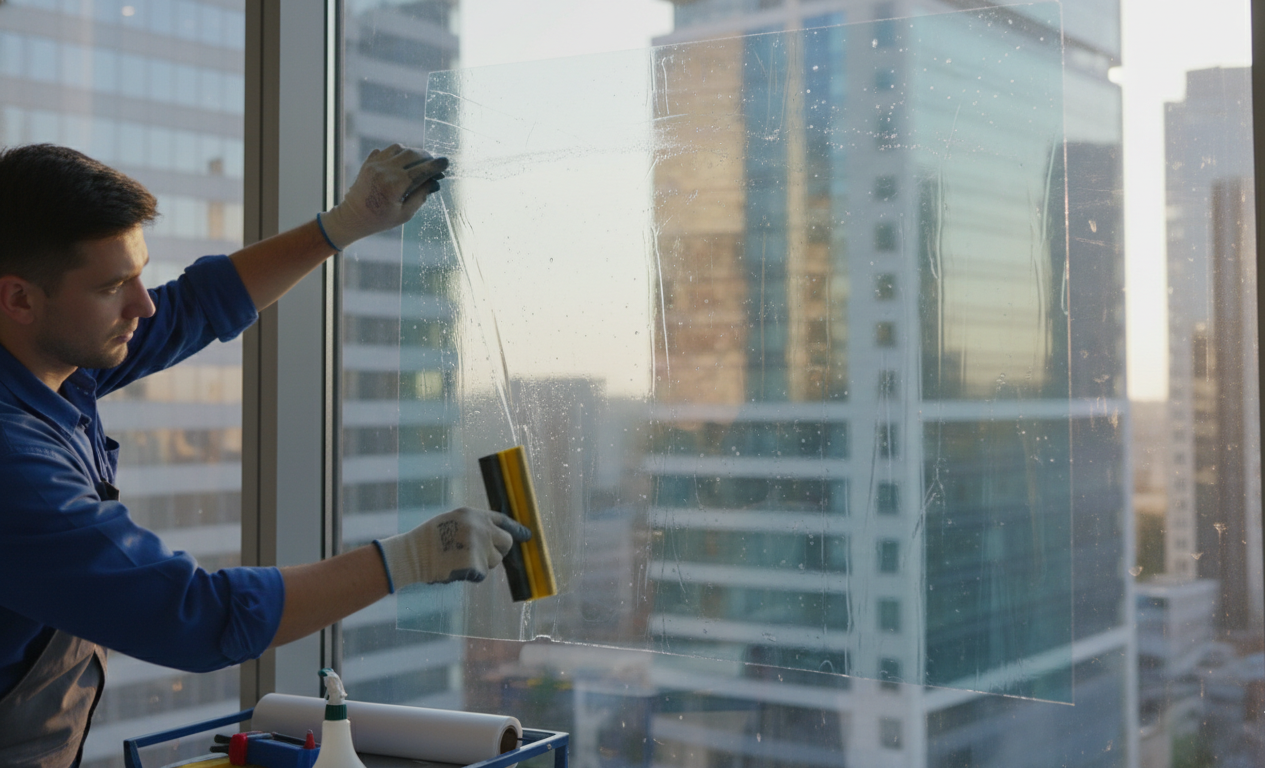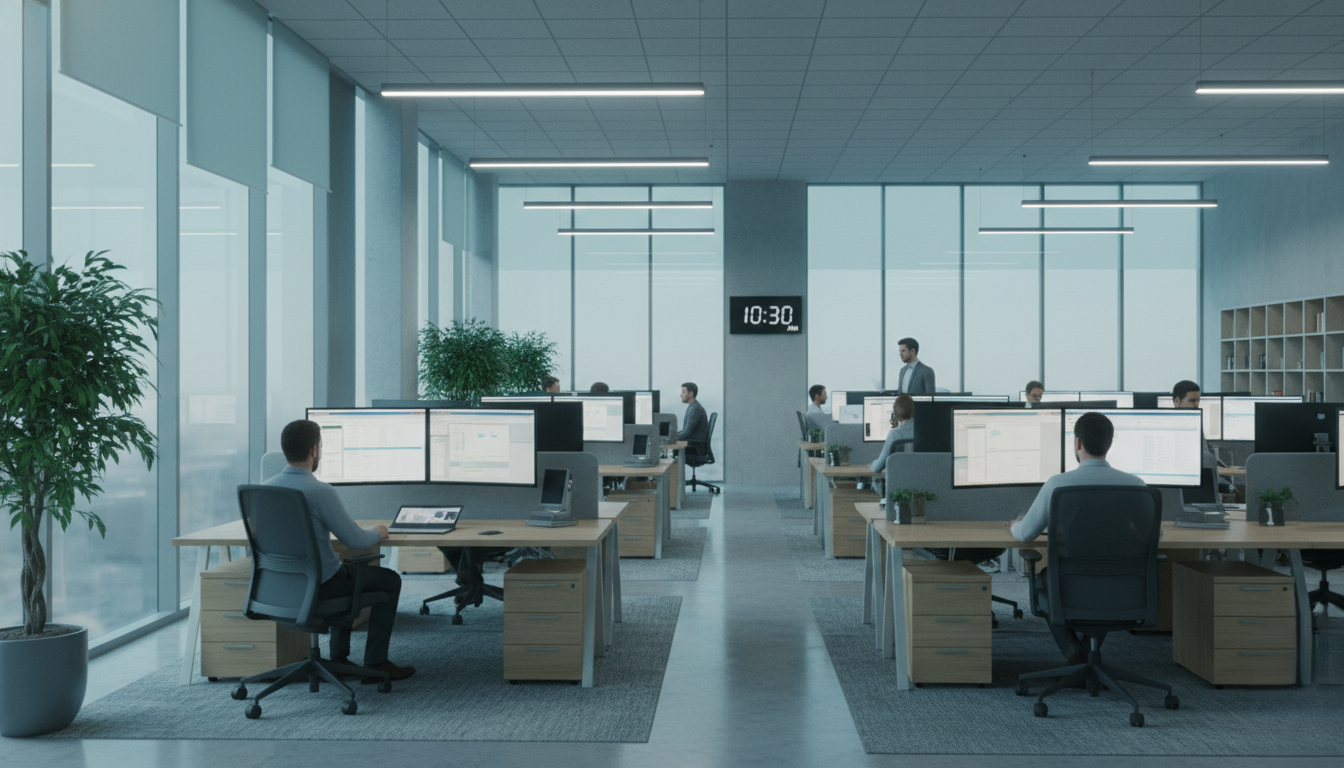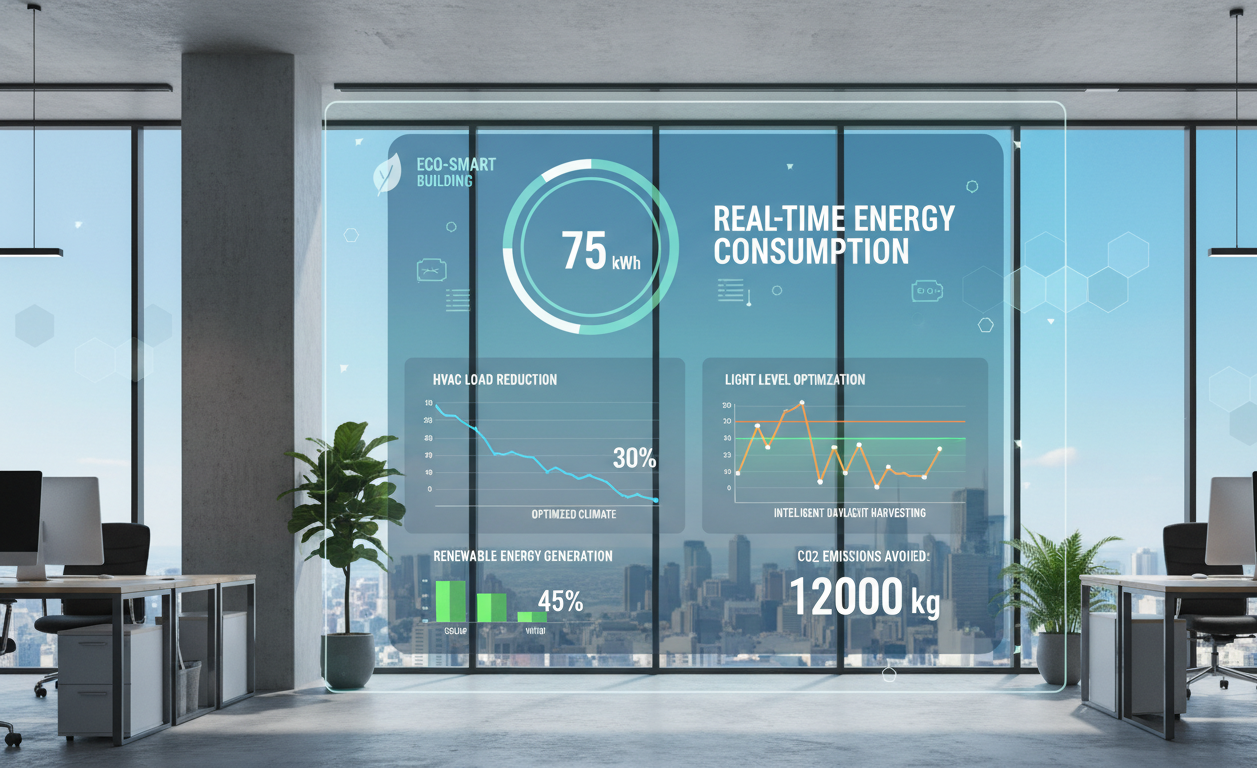
Office buildings consume a large portion of energy due to constant heating, cooling, and lighting demands. Rising utility bills and employee comfort issues often make property managers look for affordable efficiency upgrades.
Energy-saving window films are one of the most effective ways to improve building performance without major renovations. These thin, high-tech layers applied to existing glass surfaces can reduce heat gain, cut glare, and help maintain consistent indoor temperatures.
Unlike replacing windows, films are quick to install and deliver measurable savings almost immediately. They improve occupant comfort, lower strain on HVAC systems, and support sustainability goals that matter to modern businesses.
This guide explains how energy-saving window films work, their benefits for office environments, and why they have become a key part of smart energy management strategies for commercial buildings.

Energy-saving window films are designed to make office buildings more efficient and comfortable. They control how sunlight and heat interact with glass, improving insulation and reducing temperature fluctuations throughout the day.
These films are thin, multi-layered coatings applied directly to existing windows.
Many offices benefit from solar window film for commercial buildings, which blocks heat and glare while maintaining natural light.
They include solar control, reflective, or low-emissivity (Low-E) layers that block heat and harmful UV rays while allowing visible light to pass through.
Unlike standard window tinting, energy-saving films are engineered for performance. They maintain clear views while improving insulation and cutting unwanted glare from sunlight.
When sunlight enters a building, it increases indoor temperatures. Cooling systems then work harder to balance the climate, which drives up energy costs. Window films limit solar heat gain in summer and help retain warmth in winter.
This balance reduces strain on HVAC systems, leading to lower electricity use and consistent comfort across office spaces.
Energy-saving films filter up to 99 percent of harmful UV rays and reduce glare that affects computer screens and employee comfort. They also contribute to certifications like LEED or Energy Star by improving building performance without major construction.
For offices and commercial buildings aiming to cut energy costs and improve comfort, 3M offers several effective window films. The 3M Sun Control Window Film Prestige Series uses multilayer spectrally selective technology to reject up to 97% of infrared heat while letting in plenty of natural light, making it ideal for large glass facades facing direct sun.
The 3M Ceramic Architectural Window Film delivers strong solar heat rejection with minimal change to visible light perfect for maintaining bright interiors without overheating.
For year-round efficiency, 3M All Season (Low-E) Window Film improves insulation: it reduces heat gain in summer and limits heat loss in cooler months, helping stabilize indoor temperatures and lower HVAC load.
Using these 3M films helps reduce cooling and heating expenses, minimizes harsh glare and UV exposure inside, preserves interior furnishings, and offers a quick return on investment compared with full glass replacement.

Energy-saving window films deliver real advantages that go beyond cutting energy bills. They improve building performance, comfort, and sustainability, making them a smart upgrade for modern office environments.
By blocking solar heat and improving insulation, window films can lower energy consumption by up to 30 percent. This means HVAC systems work less to maintain comfortable temperatures, especially in large glass-fronted offices.
The savings from reduced heating and cooling costs often cover installation expenses within a few years. For many buildings, the return on investment is both quick and measurable.
A comfortable workspace keeps employees focused and productive. Window films help create a stable indoor temperature and prevent hot or cold spots near windows.
They also cut glare on computer screens, reducing eye strain and creating a more pleasant environment for everyone inside.
Installing energy-saving window films is one of the easiest ways to support sustainability goals. They reduce a building’s carbon footprint and eliminate the need for costly window replacements.
By improving energy performance, these films help office buildings qualify for green certifications and demonstrate a real commitment to environmental responsibility.
Not all office buildings have the same needs. Choosing the right type of energy-saving window film depends on your building’s design, location, and energy goals. Understanding the available options helps you make the most of your investment.
Solar control films block heat from sunlight and reduce glare, keeping interiors cooler and more comfortable.
Reflective and dual-reflective films use a metallic coating that reflects solar energy while maintaining clear indoor views. These are ideal for large buildings with direct sun exposure.
Low-E (low emissivity) films help retain heat during cold months and keep heat out during summer. They provide year-round efficiency, especially in climates with seasonal changes.
Spectrally selective films target specific wavelengths of light to block heat while allowing maximum daylight. They are perfect for offices that want brightness without added warmth.
Before selecting a film, evaluate your building’s glass type, window orientation, and local climate. Offices in hot regions benefit most from solar control films, while colder areas see greater savings with Low-E films.
Also, consider how much privacy and natural light your office needs. Some films add daytime privacy without darkening interiors, which is ideal for open office layouts.
Replacing all windows in a commercial building can be costly and disruptive. Window films offer similar benefits at a fraction of the price.
They install quickly, often without interrupting daily operations. Films can extend the life of existing glass and improve performance instantly, making them a faster, more affordable way to upgrade energy efficiency.
Proper installation and care are essential to getting the most value from your energy-saving window films. A well-installed film performs better, lasts longer, and delivers consistent savings year after year.
Certified professionals ensure the film adheres smoothly and evenly across every window.
Partnering with an expert in commercial window tinting and installation guarantees proper fit and lasting performance.
This prevents bubbling, peeling, or uneven coverage that can affect performance.
Professionals also select the right film type for your glass and building conditions. Their experience helps maximize energy efficiency and ensure compliance with warranty requirements.
Energy-saving window films require minimal care. Clean them using a soft cloth and mild, ammonia-free cleaner. Avoid sharp tools or abrasive materials that might scratch the surface.
With proper maintenance, most commercial-grade films last between 10 and 20 years. Many come with manufacturer warranties that cover product durability and clarity.
Routine inspections help verify that films continue performing as intended. Small maintenance steps, such as checking for edge wear or seal issues, keep efficiency levels consistent over time.
This regular care preserves your building’s energy savings and protects your investment for years to come.
Energy-saving window films deliver measurable improvements in both performance and comfort. Many office buildings experience lower energy bills within months of installation, along with better indoor working conditions.
A mid-sized corporate office in a city center installed solar control window films on its south-facing glass façade. Within the first year, the building reported a 25 percent reduction in cooling costs.
The HVAC system operated more efficiently, reducing maintenance needs and extending equipment life. The installation required no major disruptions, allowing employees to continue working during the upgrade.
After installation, employees noticed a clear difference in temperature balance throughout the day. Hot spots near windows disappeared, and glare on computer screens was significantly reduced.
Many reported feeling more comfortable, which contributed to higher productivity and a more positive work environment. The improvement in natural light also created a brighter and more inviting atmosphere.
Real-world results like these show how energy-saving window films can deliver both financial and human benefits. They make buildings more efficient and create workplaces that people enjoy spending time in.

Energy-saving window films are most effective when combined with other energy-efficient upgrades. Together, these improvements create a complete strategy for reducing costs, improving comfort, and supporting long-term sustainability goals.
When films reduce solar heat gain, air conditioning systems operate less frequently. This decreases overall energy use and extends HVAC system life.
Lower cooling demand also helps maintain steady indoor temperatures, preventing sudden climate shifts that affect comfort.
By reducing glare and improving natural light distribution, films can also cut the need for artificial lighting. This further reduces power consumption and improves workplace brightness.
Smart building systems, such as automated thermostats and light sensors, enhance the performance of window films. When paired with these systems, buildings can adjust temperature and lighting levels automatically based on sunlight and occupancy.
This integration helps maintain optimal energy use throughout the day and ensures consistent comfort without manual control.
Many companies use sustainability programs to measure and report their environmental impact. Installing window films supports goals related to energy efficiency, carbon reduction, and resource conservation.
It also strengthens corporate image by demonstrating a clear commitment to green initiatives. For organizations pursuing certifications like LEED, window films can help earn valuable energy performance credits.
Together, these strategies make buildings smarter, more sustainable, and more cost-efficient to operate.
Upgrading to energy-saving window films is one of the fastest and most effective ways to improve your building’s performance. With proper planning and professional installation, you can start reducing energy costs and improving comfort almost immediately.
Before moving forward, review a few key points:
These simple steps help ensure that the selected film meets your goals for efficiency and aesthetics.
Energy-saving window films make a lasting difference in office environments. They create balanced temperatures, lower energy bills, and improve employee satisfaction.
Energy-saving window films offer one of the simplest and most cost-effective ways to improve office building efficiency. They help lower heating and cooling costs, stabilize indoor temperatures, and create more comfortable spaces for employees.
Unlike full window replacements, these films install quickly and start delivering savings immediately. They also support corporate sustainability goals by reducing overall energy consumption and environmental impact.
For property managers, business owners, and facility professionals, this upgrade delivers both financial and operational value. It strengthens comfort, performance, and long-term return on investment.
Contact American Window Film today to get expert advice and professional installation for your office building. Our team can help you choose the right solution and start saving energy right away.
These Stories on Commercial
Stay cool and save energy with solar control window films. Learn how they regulate indoor temperature with American Window Film.
Read this postWindow film for commercial buildings improves energy efficiency, boosts security, and enhances design. Learn more with American Window Film today.
Read this postCommercial window film for privacy enhances comfort, security, and design. Contact American Window Film for expert installation today.
Read this postCorporate Location: 23042 Mill Creek Drive, Laguna Hills, CA 92653
Copyright 2025 - American Window Film | All Rights Reserved | Contractor's License #1054307
No Comments Yet
Let us know what you think